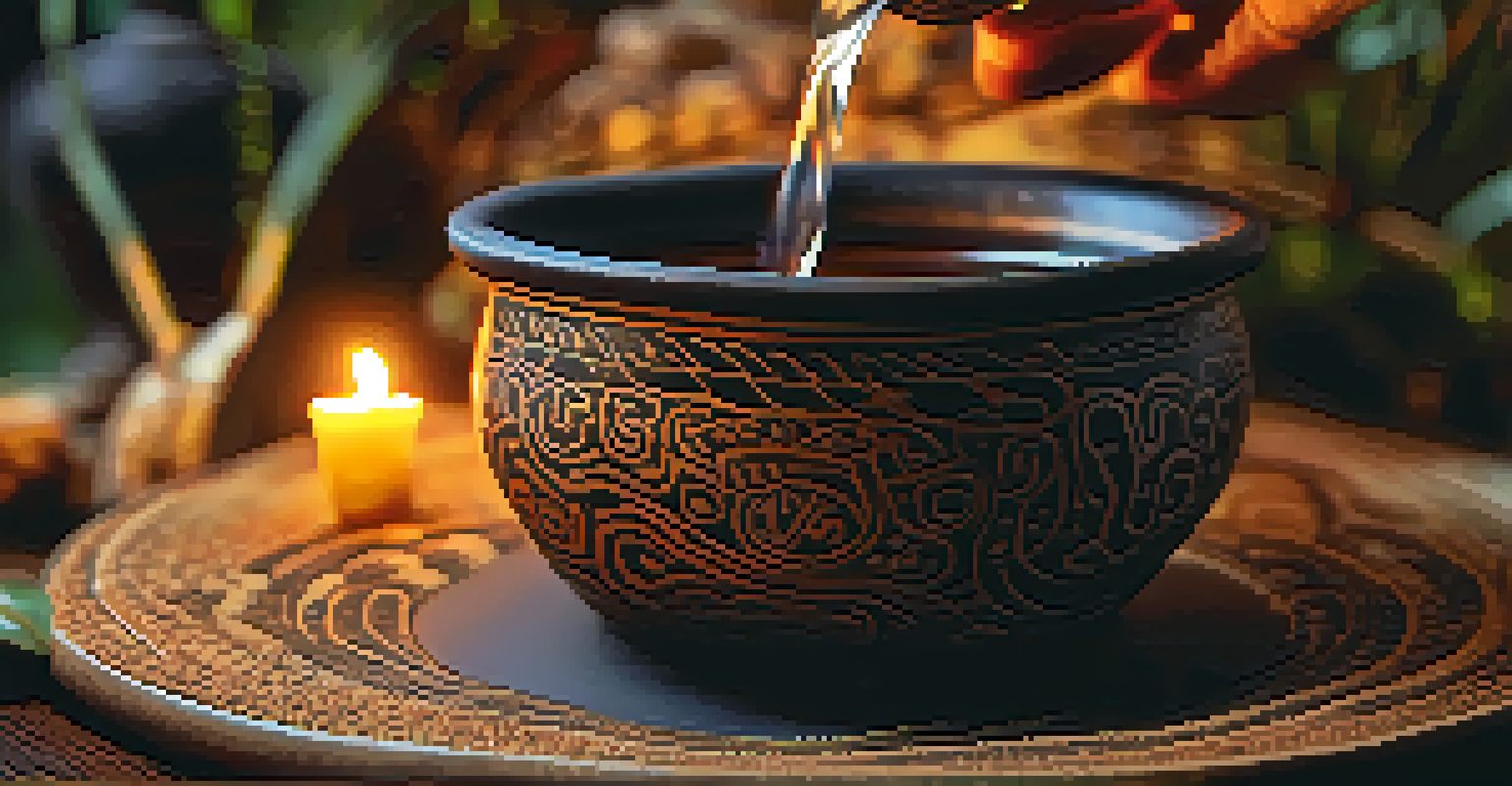Ayahuasca and PTSD: A New Approach to Trauma Healing

Understanding PTSD: A Silent Battle Within
Post-Traumatic Stress Disorder (PTSD) is a mental health condition triggered by experiencing or witnessing a traumatic event. Many people may think PTSD only affects veterans, but it can impact anyone who has faced severe trauma, from accidents to assaults. Symptoms often include flashbacks, anxiety, and emotional numbness, making daily life a challenge.
The wound is the place where the Light enters you.
Living with PTSD can feel isolating, as those affected might struggle to articulate their feelings or find effective coping strategies. Traditional therapies often focus on talking through trauma, which can be difficult for many. This is where alternative approaches, like Ayahuasca, are garnering attention as potential game-changers.
As awareness grows about PTSD, so does the search for effective treatments. While conventional methods have their merits, they don’t work for everyone. This is why exploring innovative solutions like Ayahuasca can be a beacon of hope for many seeking relief from their silent battle.
What is Ayahuasca? A Brief Overview
Ayahuasca is a traditional Amazonian brew made from the Banisteriopsis caapi vine and other plants. It has been used for centuries by indigenous tribes for spiritual and healing purposes. The brew is known for its psychoactive properties, often leading to profound introspective experiences.

The main active ingredient in Ayahuasca, DMT (dimethyltryptamine), is a powerful hallucinogen that can alter perception and consciousness. When consumed, it often induces vivid visual and emotional experiences, allowing users to confront suppressed memories and feelings. This journey can lead to significant insights and healing.
PTSD Affects Many, Not Just Veterans
Post-Traumatic Stress Disorder can impact anyone who has faced severe trauma, leading to challenges in daily life.
While Ayahuasca has roots in ancient shamanic practices, its popularity has surged globally as people seek alternative therapies. Many participants report transformative experiences that provide clarity and emotional release, which can be particularly beneficial for those grappling with PTSD.
Ayahuasca's Potential in Treating PTSD
Recent studies suggest that Ayahuasca may have therapeutic benefits for those suffering from PTSD. Participants often describe a sense of relief, as the brew allows them to process traumatic memories in a safe and supportive environment. This can lead to a reduction in symptoms and improved emotional well-being.
Healing takes time, and asking for help is a courageous step.
The experience of Ayahuasca often encourages deep self-reflection, helping individuals understand and integrate their trauma. Many find that the insights gained during their journeys are invaluable for their healing process. This approach contrasts with traditional therapies that may not always facilitate such profound realizations.
Moreover, Ayahuasca ceremonies typically take place in communal settings, fostering a sense of connection among participants. This communal aspect can help combat feelings of isolation, providing a supportive network for those on their healing journeys. It's this combination of introspection and community that makes Ayahuasca a compelling option for PTSD treatment.
The Role of Set and Setting in Ayahuasca Experiences
The concept of 'set and setting' refers to the mindset of the individual and the physical environment during the Ayahuasca experience. A positive mindset and a safe, supportive environment can significantly influence the outcome of the journey. This is particularly crucial for individuals dealing with trauma.
Choosing the right facilitator is also essential, as experienced shamans can guide participants through challenging moments. They create a safe space that encourages vulnerability and openness, which is vital for effective healing. This guidance can help individuals navigate their emotional landscapes during the experience.
Ayahuasca May Help PTSD Recovery
Recent studies suggest that Ayahuasca can facilitate emotional healing and self-reflection for individuals suffering from PTSD.
In contrast, a negative mindset or an uncomfortable setting can lead to distressing experiences. This highlights the importance of preparing oneself mentally and selecting appropriate environments for Ayahuasca ceremonies. Understanding and respecting the process can enhance the therapeutic potential of Ayahuasca for PTSD.
Risks and Considerations of Ayahuasca Use
While Ayahuasca offers promising potential for healing, it's not without risks. Individuals with certain medical conditions or those taking specific medications should approach Ayahuasca with caution, as it can interact negatively with various drugs. Consulting a healthcare professional before engaging in such experiences is crucial.
Additionally, the psychological impact of Ayahuasca can be intense, potentially leading to challenging emotional experiences. It's essential for participants to have a support system in place, both before and after the ceremony, to process their experiences. This support can help mitigate any overwhelming feelings that may arise.
Finally, finding reputable facilitators and safe environments is paramount. As Ayahuasca's popularity grows, so do the number of unregulated retreats, which can pose significant risks. Thorough research is necessary to ensure a safe and positive experience for those seeking healing.
Personal Accounts: Healing Through Ayahuasca
Many individuals have shared personal stories of transformation and healing after participating in Ayahuasca ceremonies. These accounts often highlight the emotional breakthroughs and insights gained during their journeys. For some, confronting buried trauma has led to a renewed sense of purpose and clarity.
One participant recounted how Ayahuasca helped her revisit a traumatic childhood event that she had long suppressed. Through the experience, she found the strength to release pent-up emotions, ultimately leading to healing. Stories like hers resonate with many who feel trapped by their past.
Set and Setting Are Crucial
The mindset and environment during Ayahuasca experiences significantly influence their therapeutic outcomes, especially for trauma survivors.
These personal narratives underscore the potential of Ayahuasca as a powerful tool for healing. As more people share their experiences, it becomes increasingly clear that this ancient practice can offer new hope for those battling PTSD and seeking a path toward emotional freedom.
The Future of Ayahuasca Research and Therapy
As interest in Ayahuasca continues to grow, so does the need for rigorous scientific research. Conducting studies on its effects on PTSD and other mental health conditions can help validate its therapeutic potential. Researchers are now exploring how Ayahuasca can be integrated into mainstream mental health treatment options.
Future studies may focus on understanding the biochemical processes involved in Ayahuasca experiences, providing insight into how it affects the brain. This knowledge can help create standardized treatment protocols, ensuring safety and efficacy for those seeking healing. As research progresses, the therapeutic landscape may evolve to include Ayahuasca as a viable option.

Ultimately, the combination of personal experiences and scientific research could pave the way for more comprehensive approaches to trauma healing. By embracing alternative therapies like Ayahuasca, we can expand our understanding of mental health and offer hope to those in need.